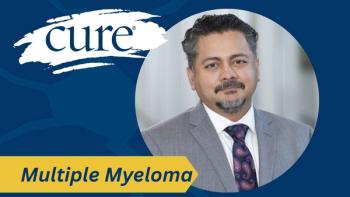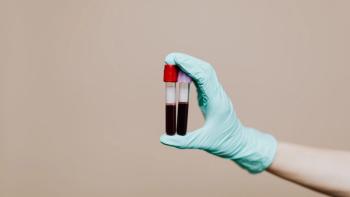
- Summer 2018
- Volume 1
- Issue 1
Comments From Our Readers on the Summer 2018 Issue
See what CURE readers have to say about our previous issues.
Optometrists Are Experts, Too
AS A THREE-TIME cancer survivor (prostate, colon, skin) and a longtime subscriber to CURE® magazine, I was very disappointed in reading your article on the possible
It was an excellent article written by Leah Lawrence, with the exception of one sentence: “Ask your oncologist to recommend an ophthalmologist for a more detailed medical examination of your eyes.”
As a practicing O.D. (doctor of optometry), I suggest that this recommendation is too narrow. Optometry has changed since I started practice back in 1964, and the great majority of us are perfectly capable of diagnosing anomalies of the eye to a degree that I never thought I would see in my lifetime. I feel that my profession deserves a retraction of that statement, as the licensure of the great majority of practicing O.D.s today includes both the diagnosis, as well as treatment, of eye disease, and in Georgia, I am licensed to prescribe any pharmaceutical agent that an ophthalmologist can.
Bill Sharpton, O.D., FAAOLAKEMONT, GEORGIA
A MINDFULNESS RESOURCE
I am 68 and living on the edge with myeloma. Each issue of CURE® magazine has something of value to me.
In the article “
In the CURE® fall 2016 issue, on page 12, was a link for the best mindful meditation site: thisiskara.com. This is a simple, wonderful, free site that works well on phones, tablets and laptops. There are 12 guided meditations, designed specifically for cancer survivors and patients.
I hope you will once again share this valuable link with your readers.
Lawrence Stacey ASHEVILLE, NORTH CAROLINA
MONEY MANAGERS CAN HELP
As a daily money manager/financial organizer, I read with special interest the response of Len Lichtenfeld, M.D., to the insurance paperwork question (House Call, winter 2018, page 19). It would be helpful for your readers to know that there actually are professionals who can help do the hard work related to tracking insurance claims and bills (and confirming their accuracy) — specifically, daily money managers and health insurance advocates. This is exactly what we do efficiently and professionally while maintaining clients’ confidential information.
Nationwide, daily money managers charge about $85 to $150 per hour; some advocates will work on a contingency basis when negotiating medical bills.
Karen R. Caccavo, MBANEW CITY, NEW YORK
APPLY FOR PATIENT ASSISTANCE
It was nice to read Andrew Smith’s article, “
Today, most patients with private health insurance have out-of-pocket costs associated with all types of medical care, not just oncology. The oncology patient can actually capitalize on the fact that there are patient assistance programs that cover not only oral medication costs but also some infused chemotherapy in clinic for those eligible. These pharmaceutical-sponsored programs are especially valuable for patients with extremely high deductibles and out-ofpocket expenses. The trend is for cancer centers to turn to these programs not only to assist with drug access for their patients but also to prevent the cost of any internal write-offs of uncollected copays and deductibles.
The patient needs to ask a point-ofcontact person, such as a patient financial counselor or nurse, about medication assistance programs. In the event that patients do not have access to help from their care teams in applying to these medication assistance programs, they need to obtain a list of their infused and oral drugs. The patients can then search the pharmaceutical manufacturers’ websites to find programs to which they may apply. Medicare patients may check whether they qualify for assistance from a patient advocacy organization such as the Patient Access Network or the Patient Advocate Foundation.
Medication and foundation assistance programs are intended to improve access to prescribed therapies. Most pharmaceutical companies’ assistance programs are largely unknown or underutilized. Let’s spread the word that there is some help with the expense of cancer treatment.
Charles LynchFORT MYERS, FLORIDA
We want to know what you think about CURE® magazine. Address your comments to instagram.com/curetoday [email protected]. If you prefer that your comment not be published, please indicate.
Articles in this issue
over 7 years ago
A Starting Player for the Houston Texans Is Facing Blood Cancerover 7 years ago
Whimsical Wigs Bring Smiles to Children Undergoing Treatmentover 7 years ago
Presence of Mind: Tips for Combatting Chemo Brainover 7 years ago
Life Lessons from Mr. Rogersover 7 years ago
Financial Healing From Cancerover 7 years ago
Robin Roberts: Making Her Mess Her Messageover 7 years ago
Former Vice President Joe Biden Encourages Teen During Treatment


